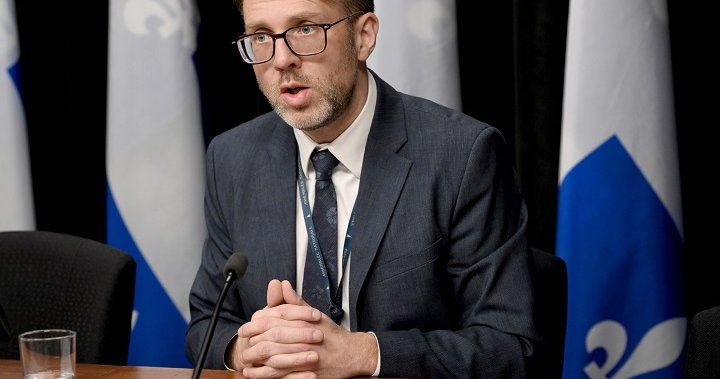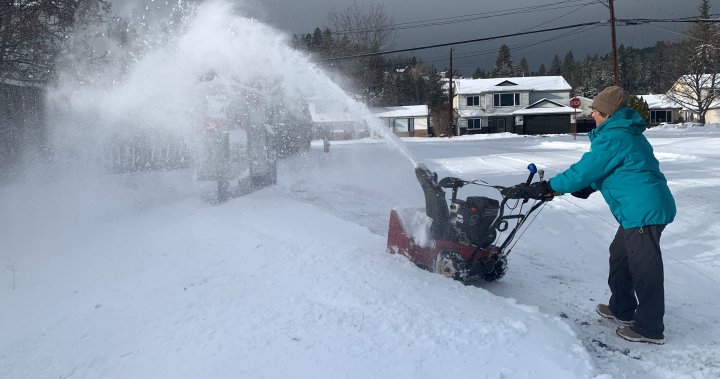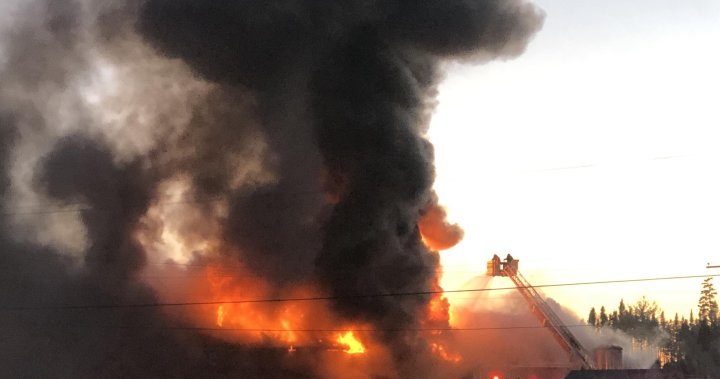Benoît Dubreuil, Quebec’s commissioner for the French language, says he isn’t suggesting asylum seekers who do not speak French be forced to settle in provinces other than Quebec.
Dubreuil clarified his recommendations in an interview with Global News Thursday, after a report he released earlier this week sparked concern among opposition parties at the national assembly.
Dubreuil’s report suggests three categories of temporary immigration are contributing to the decline of the French language in Quebec, including a surge in the number of asylum seekers.
According to the report, about a third of Quebec’s asylum seekers do not master the French language, with most in that third predominantly using English to communicate at work.
“We should take into consideration people’s language skills because it’s a huge barrier when you try to integrate in a new society and you don’t master a language,” Dubreuil said.
That’s why he recommends asylum speakers with no knowledge of the French language be encouraged to settle elsewhere — a recommendation that has some concerned.
Get the latest National news.
Sent to your email, every day.
“The very core element of our democracy and freedom and even the international convention is freedom of circulation, to make sure that people, once they enter the country, once they’re legal, they can move wherever they want and establish wherever they want,” Québec solidaire immigration critic Guillaume Cliche-Rivard said.
“If an asylum seeker is coming to Montreal and his family’s already here, are we going to ask him to go to British Columbia? No way.”
Quebec Liberal Party interim leader Marc Tanguay also argued that “people are here to seek asylum and it’s not a question about the language.”
“Now, if they want to stay in Quebec, of course we have to put in place efficient programs in order to help them to learn French,” Tanguay said.
The commissioner says the province’s francization program doesn’t appear to be working either. Temporary immigrants are often wait-listed to receive the French courses, and when they do get in, the majority spend an average of three months learning the language, often juggling the courses with family duties and jobs, making it difficult for them to become proficient.
He suggests investments of up to $13 billion are needed for the francization of temporary immigrants.
“(Redirecting them) can be purely voluntary,” Dubreuil explained. “You could just give people better information about the language situation in Quebec and in Canada, you can offer incentive support, and just explain to people what are the options and the other provinces.”
Immigration Minister Christine Fréchette told reporters earlier on Thursday that any effort to send asylum seekers outside the province would be just that — voluntary.
“It has to be voluntary for the people. They have to accept to go somewhere else in Canada and that would be the first criteria,” she said. “The increase in the temporary workers, as well as the non-permanent residents, is surprising, it has been going up very fast and we need to reduce that number so this is why we are asking the federal government to take action for asylum seekers.”
Fréchette said the province intends to turn up the heat and pressure the federal government further until it sees action.
© 2024 Global News, a division of Corus Entertainment Inc.




